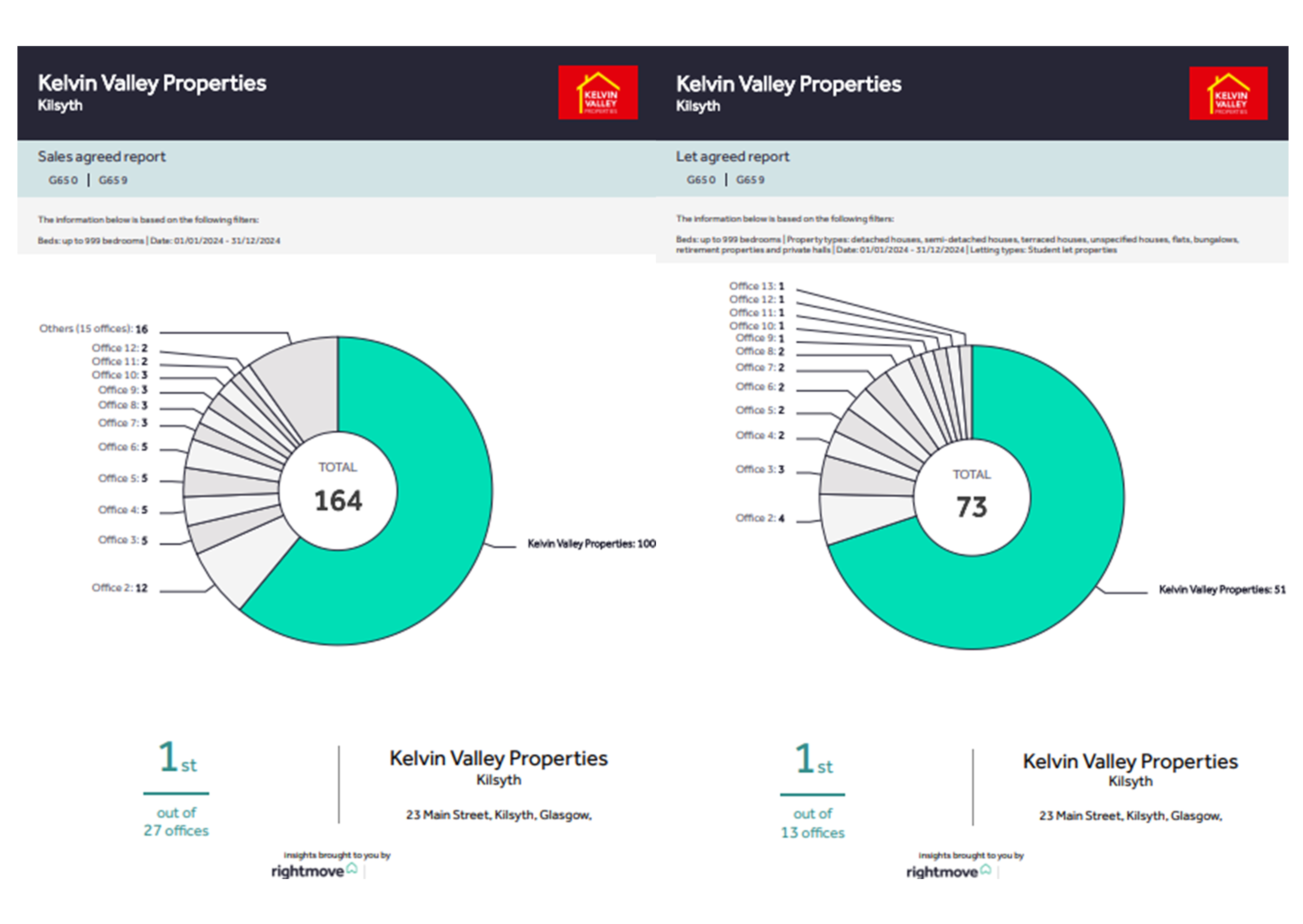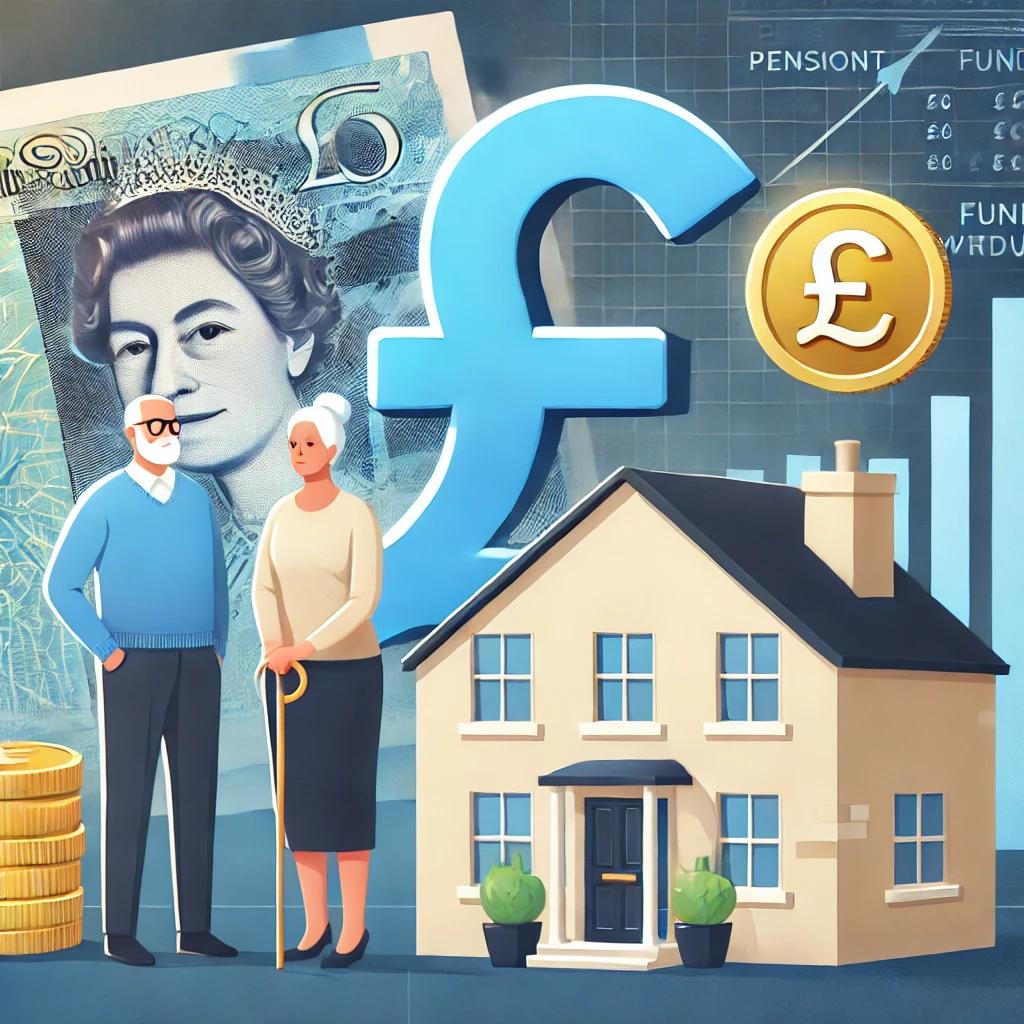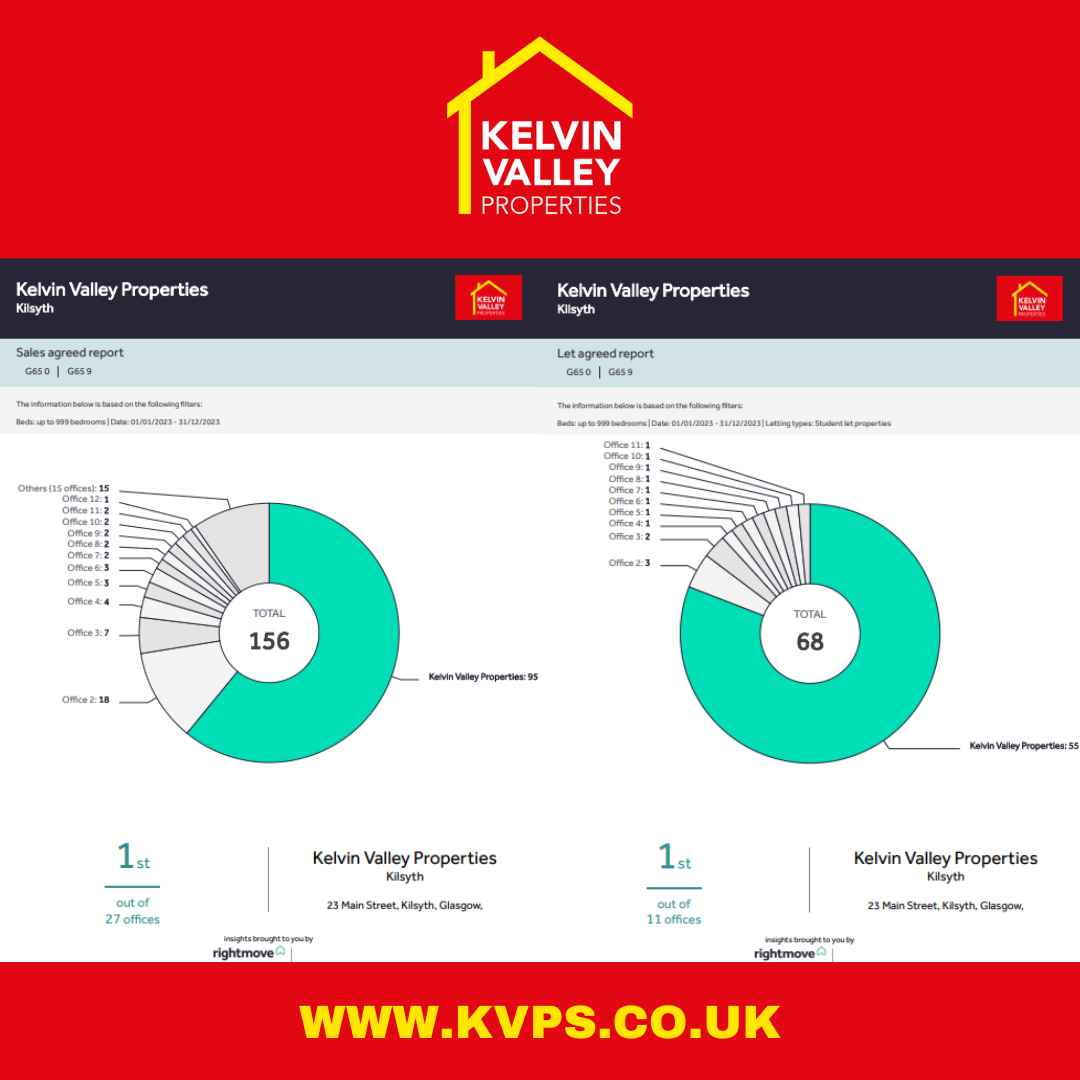Blog
- Details
- Hits: 792
Buying or selling a property is one of the most significant financial transactions many people will ever undertake. The process can be complex, time-consuming, and fraught with potential pitfalls. That’s why enlisting the expertise of an experienced estate agent is crucial. A knowledgeable professional can help streamline the process, negotiate the best deal, and provide invaluable guidance every step of the way.
Market Knowledge and Expertise
An experienced estate agent has in-depth knowledge of the local property market. They understand current trends, property values, and the factors influencing demand and supply. They also know exactly what has sold very recently and at what price, long before the data appears on websites like Rightmove and Zoopla. This insight allows them to provide realistic valuations, ensuring sellers don’t undervalue their homes or price them too high, which could deter potential buyers.
Negotiation Skills
Negotiating the best price is a critical aspect of any property transaction. An experienced estate agent has honed their negotiation skills over many years of practice. They know how to handle counteroffers, navigate tricky discussions, and secure the best possible deal for their clients. Whether you’re selling and aiming for the highest price or buying and hoping to get a good deal, having a professional negotiator on your side is invaluable.
Working with Other Property Professionals
The legal compliance and administrative side of property transactions can be overwhelming. There are home reports, legal offers, disclosures, money laundering checks, the Property Misdescriptions Act and a whole host of other things that anyone selling their home has to consider! An experienced estate agent ensures everything is done correctly and they also have strong relationships with surveyors, local solicitors, architects and local tradesman, so can resolve a whole variety of potential problems quickly and keep a property sale on track. This reduces the risk of costly mistakes and delays, preventing issues that could jeopardise a sale as early as possible.
Effective Marketing Strategies
For sellers, a comprehensive and well-thought-out marketing strategy can make all the difference in attracting the right buyers. Experienced estate agents will use a wide variety of both modern and traditional marketing methods to ensure the highest possible interest levels for the seller. They won’t simply ‘list it and hope for the best’, or offer a cut price marketing package that fails to get a seller anywhere near the level of interest required to sell their home for the best price. They will have an extensive database of local buyers and work that database hard, ensuring the best possible results for their clients.
Guidance and Support Throughout the Process
Whether buying or selling, emotions can run high. An experienced estate agent provides reassurance, advice, and a steady hand to guide you through the process. They can anticipate challenges, offer solutions, and ensure you stay informed at every stage.
Their support is particularly valuable for first-time buyers and sellers who may not be familiar with the intricacies of property transactions. Knowing that a professional is managing the details can significantly reduce stress.
Saving Time, Reducing Stress, and Ensuring the Best Result
Attempting to navigate the property market without expert assistance can be overwhelming. Marketing, home reports, viewings, negotiations, paperwork, and legalities all take time and effort. An experienced estate agent handles these aspects efficiently, allowing you to focus on other priorities. Their expertise helps prevent delays and ensures a smoother transaction overall.
Also (and perhaps the most important thing of all), an experienced agent will ensure your property sells for the best possible price and you achieve the best result. This can make the difference of tens of thousands of pounds and there is huge variance between the quality and results of different agents. Some sellers make the mistake of simply choosing the cheapest agent thinking they are saving a bit of money, only to realise at a later date that they have lost out on thousands of extra revenue that they would have secured with an experienced agent.
Conclusion
The importance of using an experienced estate agent cannot be overstated. Their market knowledge, negotiation skills, legal expertise, and marketing strategies all contribute to a successful property transaction and a far greater result. Whether buying or selling, having a professional by your side ensures a smoother, less stressful, and ultimately more profitable experience. When dealing with something as significant as property, it truly pays to have an expert guiding the way.
- Details
- Hits: 908
Using pension funds to invest in property is an appealing option for many people in the UK who are looking to secure financial stability and generate passive income. Having 100% of your pension invested in stocks, shares and bonds is highly risky and diversifying into the stable bricks and mortar investment of UK property is a serious consideration for anyone looking to diversify and spread risk.
One potential route into property investment is withdrawing tax-free pension funds to finance an investment property. While this can be an effective way to leverage your pension savings, it's essential to understand the rules, tax implications, and long-term financial impact before making a decision.
Understanding Pension Withdrawals in the UK
In the UK, from the age of 55 (rising to 57 in 2028), individuals with a defined contribution pension can access their pension pots. The first 25% of the pension pot is available tax-free, while the remaining 75% is subject to income tax at the individual's applicable rate.
Options for Withdrawing Pension Funds
- Lump Sum Withdrawal – You can take out 25% of your pension pot as a tax-free lump sum. The remaining amount can either stay invested or be withdrawn in stages, subject to tax.
- Drawdown Scheme – Flexi-access drawdown allows you to take 25% tax-free and then withdraw the rest in stages as needed.
- Small Pots Rule – If you have smaller pension pots (under £10,000 each), you may be able to withdraw them fully with 25% tax-free and the remainder taxed.
Using Pension Funds to Buy Property
Since you cannot directly invest pension funds into residential property within a Self-Invested Personal Pension (SIPP) or other pension schemes (due to tax penalties), withdrawing tax-free cash is often the most viable option for property investment.
Key Benefits:
- Access to Capital – The tax-free withdrawal provides an immediate source of funds without tax deductions.
- Potential for Higher Returns – Property investment can generate both rental income and capital appreciation over time.
- Diversification – Moving funds from pensions to property diversifies your investments and reduces reliance on the stock market.
- Stability – Property is far less subject to large fluctuations in value and even during times of recession does not drop in value anywhere near as much as other assets.
- Tax – Using pension funds to invest via a UK LTD Company has a range of tax benefits, especially for higher rate tax payers who can substantially reduce their tax liability via the LTD Company route.
Final Thoughts
Withdrawing tax-free pension funds to buy investment property in the UK can be a wise strategic move for many investors, but it requires careful planning and seeking professional advice. Consider consulting with our experienced Lettings Team who have assisted many investors to secure a strong return on their investments. Balancing pension security with property investment potential is key to ensuring financial stability in the years ahead.
Contact our Lettings Team for more information on 0800 133 7775 or email This email address is being protected from spambots. You need JavaScript enabled to view it.
0800 133 7775
This email address is being protected from spambots. You need JavaScript enabled to view it.
- Details
- Hits: 874

Describing the 2024 property market in one sentence, it's fair to say it was 'The Year of Two Halves’. The year started slowly, with the hangover from some disastrous financial and political decisions, combined with high interest rates meaning mortgages remained expensive. This combination of factors meant that buyers and sellers remained cautious, with large numbers of people taking opting for safety first and simply choosing to ‘remain put’.
This resulted in far less transactions in the first 6 months than would normally be expected, especially in months like April and May which are the traditionally busy ones for high volumes of sales. Here at Kelvin Valley, we sold 61% of properties listed locally and achieved a combined total of just over £1.2m above home report value for our clients, meaning that clients who sold with Kelvin Valley achieved the best results by a considerable margin.
Whilst the sales market dragged its feet with less transactions and less closing dates happening, the rental market steamed ahead with rapid growth as rents finished the year 9.6% higher on average than they were at the start of the year. This is something that we often see - when less people are buying and selling, then more people rent which in turn leads to rents going up quickly. Combined with the lack of enough rental properties to go around, it is likely that rents rising is a trend that will continue for the foreseeable future. The Kelvin Valley lettings team rented a very high 70% of rental properties in the local area, with the average time taken to let a property coming in at just under 4 days.
As summer holiday season finished late July / early August, the market improved considerably. Here at Kelvin Valley, our busiest months of the year were September and October when much larger numbers of people than usual decided to move house. There were closing dates aplenty and some outstanding sales results with sellers able to pick from large numbers of high offers due to a sharp increase in demand, especially for family homes in the area. Interest rates were being cut, mortgages were getting cheaper, and there was clearly a lot of pent-up demand from the last couple of years where people were desperate to get moving again.
As always, the property market is driven by supply and demand. There remains a distinct lack of quality properties available for sale in local postcode areas and as a result, that means that most will continue to sell quickly and for good prices. Reports on the condition of the national housing market report that as a nation, Scotland is somewhere around 100,000 houses short of where it needs to be for the population and whilst that remains the case, it is very likely that demand will continue to outstrip supply in the years ahead.
Here at Kelvin Valley, despite a challenging first half to the year, on 67% of properties we sold in 2024 we were able to achieve our clients above home report. Our best result was a sale at £95,000 above value and we did also have some other outstanding results where we achieved tens of thousands more than our delighted clients were expecting due to our comprehensive marketing ensuring high levels of viewings and interest.
As we look ahead to 2025, there is certainly going to be an interesting year ahead for the local property market. Most experts predict that property prices will increase between 2-4% but we have found over the years that most predictions are pessimistic and as an example in 2024 most experts were predicted zero growth with some even predicting price drops. The market then went on to exceed all expectations and prices rose 4.8% in 2024 despite wider political and economic challenges. It is likely that some of these challenges will continue for a while yet, with governments both North & South of the border continuing to make questionable decisions which are affecting the wider economy!
Interest rates set to fall further in the medium to longer term, which will result in mortgages becoming cheaper. It is expected that the base rate will decrease by somewhere between 0.5% - 1% by the end of 2025. The key underlying indicators do point towards a strong market for 2025. More and more buyers will continue to come back into the market each time interest rates drop another quarter percent and we are predicting 3 or 4 of those in the year ahead, meaning the base rate could end up below 4% by year end.
The Kelvin Valley predictions for 2025?
- Property prices will rise by a further 4%
- Rents will increase by a further 6%
- The number of property transactions will be much higher than 2024
- Interest rates will steadily drop throughout the year, with mortgages becoming cheaper
We hope you have found this market summary from 2024 and outlook for 2025 useful. Here at Kelvin Valley we always try to keep our clients as up to date as possible.
Whether buying, selling or renting, our team can provide accurate and up to date information and will be more than happy to assist.
- Details
- Hits: 1451
- Details
- Hits: 2155
THE KELVIN VALLEY MARKET OUTLOOK FOR 2023
Put simply, 2022 was a rollercoaster year for the property market! Never in such a short space of time have we witnessed quite so many strange things happening with politics, legislation changes, significant financial policy changes (which were then changed back) – there really was all sorts of weird and sometimes not very wonderful things going on! If there was one phrase that is perhaps the most accurate, it would be to say that 2022 was a ‘year of two halves’.
The first half of the year witnessed a very buoyant property market with pretty much every property selling above home report value and some selling substantially over home report! It was during the busy Spring market in May that our Sales Team recorded their highest ever sale in the area at £120,000 over home report (and no that is not a typo, that is one hundred and twenty thousand pounds above the home report value in the local area!)
We were experiencing incredibly high levels of interest from buyers, and it was not unusual to be receiving between 10-15 offers per property at closing date and for those offers to be substantially above home report value. Detached houses in particular were in high demand throughout the area as people craved more indoor and outdoor space, and we saw many people moving out of city centres out to towns like Kilsyth, Cumbernauld, Kirkintilloch and the surrounding villages. Any property that was semi-rural was being snapped up by people desperate to move to the countryside, in search of a better lifestyle. Offers ranging from £30k - £60k above home report were becoming the norm on detached properties in the areas in which we were selling.
Meantime, the rental market continued to gather pace with rental demand getting higher and higher as the year progressed, and by the time we hit the summer months we were receiving over 100+ applications for every property we marketed. Inflation was now reported to be running into double digits and everyone’s costs were rising sharply, and we also witnessed a large jump in rents in the area. A series of crazy housing policy changes introduced by the Scottish Government were leading to far fewer rental properties being available, as many landlords sold their properties 2022.
By the time we reached the end of the summer, media coverage was gathering pace that inflation was running far to high and one of the primary ways to combat it was going to be some rather sharp interest rate increases. The Bank of England base rate had been artificially low for over a decade now, and it was always going to be the case that it would start rising. The amount of negative media reports about the UK economy, the national debt, how high inflation was, and how the property market would be negatively affected, all caused the market to slow down coming out of the summer months and into the Autumn ones. Although properties were still selling, we noticed that the number of viewings and level of offers were starting to drop. We were achieving good prices for clients on their sales, but not to anywhere like the level we had been achieving in the first half of the year. Although we could see the market naturally starting to slow and settle more towards more ‘normal’ market conditions, nobody was quite prepared for what happened next!
On the 23rd September following a change of Prime Minister, a UK ‘Growth Plan’ was put forward (now infamously known as the ‘mini-budget’). Nobody could have realised quite what a disastrous effect this would have on the financial markets, but there was sudden panic. The UK was quickly downgraded to being far less credit worthy on the international money markets. The mini-budget caused a series of events that shocked the economy and the property market. The bottom line is that the majority of analysts and experts could only forsee that it was going to plunge the UK into more debt and cause many more problems than it solved.
On the 17th October less than a month later, the vast majority of the mini-budget was reversed, and only a week after that we had a new Prime Minister, however the damage had already been done! The Bank of England started raising interest rates sharply, and the UK mortgage lenders had been so panicked that in the space of a few days in September mortgage rates went from around the 3% mark to over 6% - put simply, it went from being very affordable to get a mortgage to suddenly being very expensive, almost overnight!
All of these things of course negatively impacted the wider economy and people simply stopped spending money. People that had been lining up to buy houses and make offers were having second thoughts and, in some cases, could no longer afford to move anyway, based on the new mortgage rates! This was a worrying time for people who currently had property sales going through and mortgage applications that were in progress. We had many buyers and sellers who were very worried as to whether their transactions would actually settle. Our Sales Team were involved in one chain of sales that had eight properties in it, and we had to spend a lot of time speaking to clients, solicitors and mortgage brokers to try and keep everything moving in the right direction!
Transactions that should have been straightforward and taken 5 or 6 weeks to go through were now suddenly taking 10-12 weeks and people were getting very stressed. We even heard cases of mortgage lenders withdrawing offers that they had already made to people, although thankfully that didn’t happen to any of our clients!
By November, the dust had settled and many lenders were slowly starting to release more affordable mortgage products again and we even got back down to deals in the 4 – 4.5% range. Whilst this wasn’t as good as the 3% people were getting in the summer, it was still a lot better than the 6% people were being quoted in September. All of the negativity in the market however and the shock that the mini-budget and doubling of mortgage rates caused, did have a clear knock-on effect onto the general market conditions and we found November and December a lot slower with far few properties coming to the market and far few buyers looking for them when they did. Seasonally of course, November and December are traditionally quieter months for the property market anyway so a combination of factors really put the brakes on the market as 2023 drew to a close.
One of the frustrating things, is that the property market was already starting to cool coming off the summer months anyway and did not need any drastic intervention. The mistakes made over the mini-budget just caused the market to slow much faster than it should have, and a lot of unnecessary panic for people that did not need to happen.
However, what has been interesting moving from the end of 2022 and into a New Year, is the large amount of people now talking about moving in 2023 and requesting valuations or being added to our buyer database. At the close of every year we systematically work through our buyer database. With everything that happened in the final few months of the year we expected a lot of buyers to be unregistering or advising us that they were putting off their plans to move house, however that has not been the case. In fact, our database of registered buyers has actually been growing which gives an early indication that whilst people have perhaps hit the ‘pause’ button in the 2nd half of 2022, that they are very much now going to be actively looking for a new home in 2023.
Since the turn of the year, there has been a lot of evidence that the property market is now returning to more ‘normal’ market conditions (i.e. like what we had in 2018 / 2019 pre-covid). In our first week back after New Year, we sold four more properties, two of which had been on the market for over a month and had been struggling for interest in December. Of the four properties we sold in the first week back, two sold right on the home report value, and the other two sold above the home report by a few thousand pounds, but certainly not by tens of thousands.
It looks likely that this will be the pattern that the market starts to now fall into, where properties sell much closer to home report value and buyers will not be prepared (or unable) to pay tens of thousands over. We are not seeing properties selling below home report, and demand in local postcode areas remains strong, but we may start to see some sales below home report in the lower end of the market now that landlords are being taxed an exorbitant 6% on any buy to let purchases. Several of the housing policy changes in Scotland in 2022 have been very anti-landlord, which then of course has a knock on effect in the lower price ranges where lots of properties would have traditionally been sold to landlords. Landlords now have to reflect the new 6% ADS tax into any offers they make, and as usual it is the ‘end user’ that is most affected, whether that be a seller who is now receiving less for their property or a tenant who is having to pay a much higher rent to help cover landlord’s increased costs. Here at Kelvin Valley, we believe that the bottom end (sub-£125k) and the top end (above £400k) of the local market that will be the most adversely impacted in 2023 by everything that has happened in recent months. We still expect to see very good levels of demand across the rest of the market between £125k - £400k where the vast majority of buyers are and where there are simply not enough family homes in the area to go around.
We have seen all sorts of reports about how the property market is going to perform in 2023, right from the doom and gloom reports about values dropping 10%, through to the optimistic reports that values with rise a further 5-7% in the year ahead. We are reminded that at the start of 2022, most so-called experts predicted a post-covid crash of up to 10% for the year just past, and a very challenging year for the property market. They got it completely wrong, and instead we saw property values in fact rise by a further 10% in most local postcode areas. Many ‘experts’ were as much as 20% out with their predictions!
We still remember the poor souls who told us at the start of covid in the Spring of 2020 that they were going to hold off for the ‘imminent crash’ before buying. They then had to watch values going up by 25% - 30% over the next 2.5 years as they were totally priced out of the market. The problem with watching too much news or trying to wade through conflicting media advice, is that often the so-called experts can be completely wrong. Over the years we have learned that procrastination steals opportunity, and whilst it is wise to do your research, you can end up priced out of the market or costing yourselves tens of thousands more by waiting to long.
The bottom line in central Scotland, is that we still have a huge shortage of available housing stock and this was exacerbated by covid. There are simply not enough properties to go around. Whilst there remain more people buying than selling, then prices will continue to go up. If the number of people buying and the number of people selling starts to balance out, then values will start to stay at the same levels neither going up nor down. For property values to fall, there would need to be a glut of properties on the market not selling and a dramatic fall in the number of people buying for that to happen. There are no signs of that at the moment, so unless there is a major swing both in terms of supply and demand, it is unlikely that we are going to suddenly see a property price ‘crash’ in the year ahead.
What we more realistically are likely to see, is buyers being more cautious and carefully budgeting, which will lead to offers being made in and around home report levels on most properties. Homes that are popular and end up having closing dates with multiple offers will still continue to sell above home report value, but it is our believe that many more properties will sell around the home report value in 2023.
In some ways, this does make the market a more level playing field, and buyers and sellers have much better ideas on what they need to offer when buying, and what to expect for their properties when selling. Whilst you may no longer receive that fantastic £50k over home report offer when selling in 2023, you also won’t then need to sink that same £50k (or more) straight back into the property you are buying either! The end result is that many people can end up with smaller mortgages and less ‘dead money’ tied up in properties all because they paid well above the actual value and that money is now gone and can’t be considered equity.
Whilst we don’t expect property values to drop or suddenly start selling tens of thousands below home report, we do expect the rate of growth to slow right down this year, perhaps to somewhere in the region of 1-3% growth and below the current level of inflation.
However, it is worth remembering that we have just had 3 years of significant price increases, so this ‘settling down’ of the market was something that was always going to happen, and in some ways we are surprised that the rapid growth phase of the market lasted as long as three full years. Even if property prices were to fall 5% in 2023, the fact that they rose 30% between 2020 – 2022 means that they would still be up by 25% in 4 years (instead of up 30% in 3 years).
The medium to long term outlook for the property market remains strong, primarily because there are simply not enough properties to go around and nationally we are way short of the housing stock we should have for the size of population (especially in the central belt where the most employment opportunities are).
We hope you have found this market summary from 2022 and outlook for the New Year useful, and hopefully it has provided you with plenty of information on how the market has been and what is expected in the next 12 months.
Whether buying or selling, our Sales Team can provide accurate and up to date information and will be more than happy to assist.
0800 133 7775
This email address is being protected from spambots. You need JavaScript enabled to view it.














